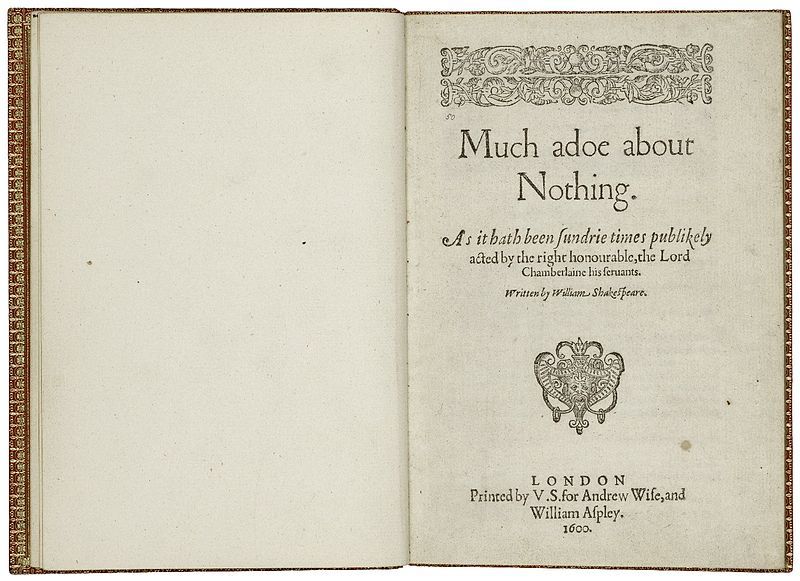



Much Ado About Nothing is a comedy by William Shakespeare thought to have been written in 1598 and 1599, as Shakespeare was approaching the middle of his career. The play was included in the First Folio, published in 1623.
By means of "noting" (which, in Shakespeare's day, sounded similar to "nothing" as in the play's title, and which means gossip, rumor, and overhearing), Benedick and Beatrice are tricked into confessing their love for each other, and Claudio is tricked into rejecting Hero at the altar on the erroneous belief that she has been unfaithful. At the end, Benedick and Beatrice join forces to set things right, and the others join in a dance celebrating the marriages of the two couples.

The first page of Much Ado About Nothing, printed in the Second Folio of 1632 Much Ado About Nothing...
The earliest printed text states that Much Ado About Nothing was "sundry times publicly acted" prior to 1600 and it is likely that the play made its debut in the autumn or winter of 1598–1599. The earliest recorded performances are two that were given at Court in the winter of 1612–1613, during the festivities preceding the marriage of Princess Elizabeth with Frederick V, Elector Palatine (14 February 1613). The play was published in quarto in 1600 by the stationers Andrew Wise and William Aspley. This was the only edition prior to the First Folio in 1623.

The title page from the first quarto edition of Much Adoe About Nothing, printed in 1600.
